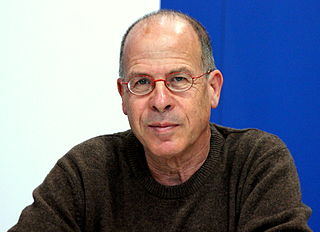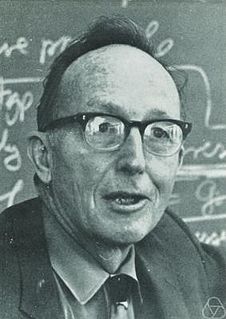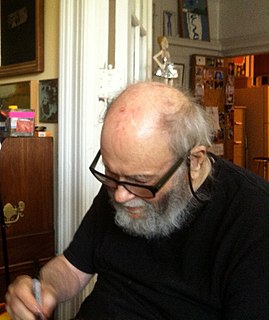A Quote by William Thurston
Mathematics is an art of human understanding.
Quote Topics
Related Quotes
If you ask ... the man in the street ... the human significance of mathematics, the answer of the world will be, that mathematics has given mankind a metrical and computatory art essential to the effective conduct of daily life, that mathematics admits of countless applications in engineering and the natural sciences, and finally that mathematics is a most excellent instrumentality for giving mental discipline... [A mathematician will add] that mathematics is the exact science, the science of exact thought or of rigorous thinking.
Besides language and music, it [mathematics] is one of the primary manifestations of the free creative power of the human mind, and it is the universal organ for world understanding through theoretical construction. Mathematics must therefore remain an essential element of the knowledge and abilities which we have to teach, of the culture we have to transmit, to the next generation.
In the current era, more than prodigies in mathematics, science, athletics, or art, I believe we need prodigies of good character and integrity. People who have polished their character and integrity until they shine are the ones who can be the real heroes the world needs to solve its problems. I think that, when people have the correct understanding of the meaning of human character, there will be a solution.
. . . the membership relation for sets can often be replaced by the composition operation for functions. This leads to an alternative foundation for Mathematics upon categories -- specifically, on the category of all functions. Now much of Mathematics is dynamic, in that it deals with morphisms of an object into another object of the same kind. Such morphisms (like functions) form categories, and so the approach via categories fits well with the objective of organizing and understanding Mathematics. That, in truth, should be the goal of a proper philosophy of Mathematics.
All writing, all art, is an act of faith. If one tries to contribute to human understanding, how can that be called decadent? It's like saying a declaration of love is an act of decadence. Any work of art, provide it springs from a sincere motivation to further understanding between people, is an act of faith and therefore is an act of love.
[Mathematics] is security. Certainty. Truth. Beauty. Insight. Structure. Architecture. I see mathematics, the part of human knowledge that I call mathematics, as one thing - one great, glorious thing. Whether it is differential topology, or functional analysis, or homological algebra, it is all one thing. ... They are intimately interconnected, they are all facets of the same thing. That interconnection, that architecture, is secure truth and is beauty. That's what mathematics is to me.
In my own version of the idea of 'what art wants,' the end and fulfillment of the history of art is the philosophical understanding of what art is, an understanding that is achieved in the way that understanding in each of our lives is achieved, namely, from the mistakes we make, the false paths we follow, the false images we have come to abandon until we learn wherein our limits consist, and then how to live within those limits.
Mathematics never reveals man to the degree, never expresses him in the way, that any other field of human endeavour does: the extent of the negation of man's corporeal self that mathematics achieves cannot be compared with anything. Whoever is interested in this subject I refer to my articles. Here I will say only that the world injected its patterns into human language at the very inception of that language; mathematics sleeps in every utterance, and can only be discovered, never invented.
How is it that there are so many minds that are incapable of understanding mathematics? ... the skeleton of our understanding, ... and actually they are the majority. ... We have here a problem that is not easy of solution, but yet must engage the attention of all who wish to devote themselves to education.
Mystery is an inescapable ingredient of mathematics. Mathematics is full of unanswered questions, which far outnumber known theorems and results. It's the nature of mathematics to pose more problems than it can solve. Indeed, mathematics itself may be built on small islands of truth comprising the pieces of mathematics that can be validated by relatively short proofs. All else is speculation.





































